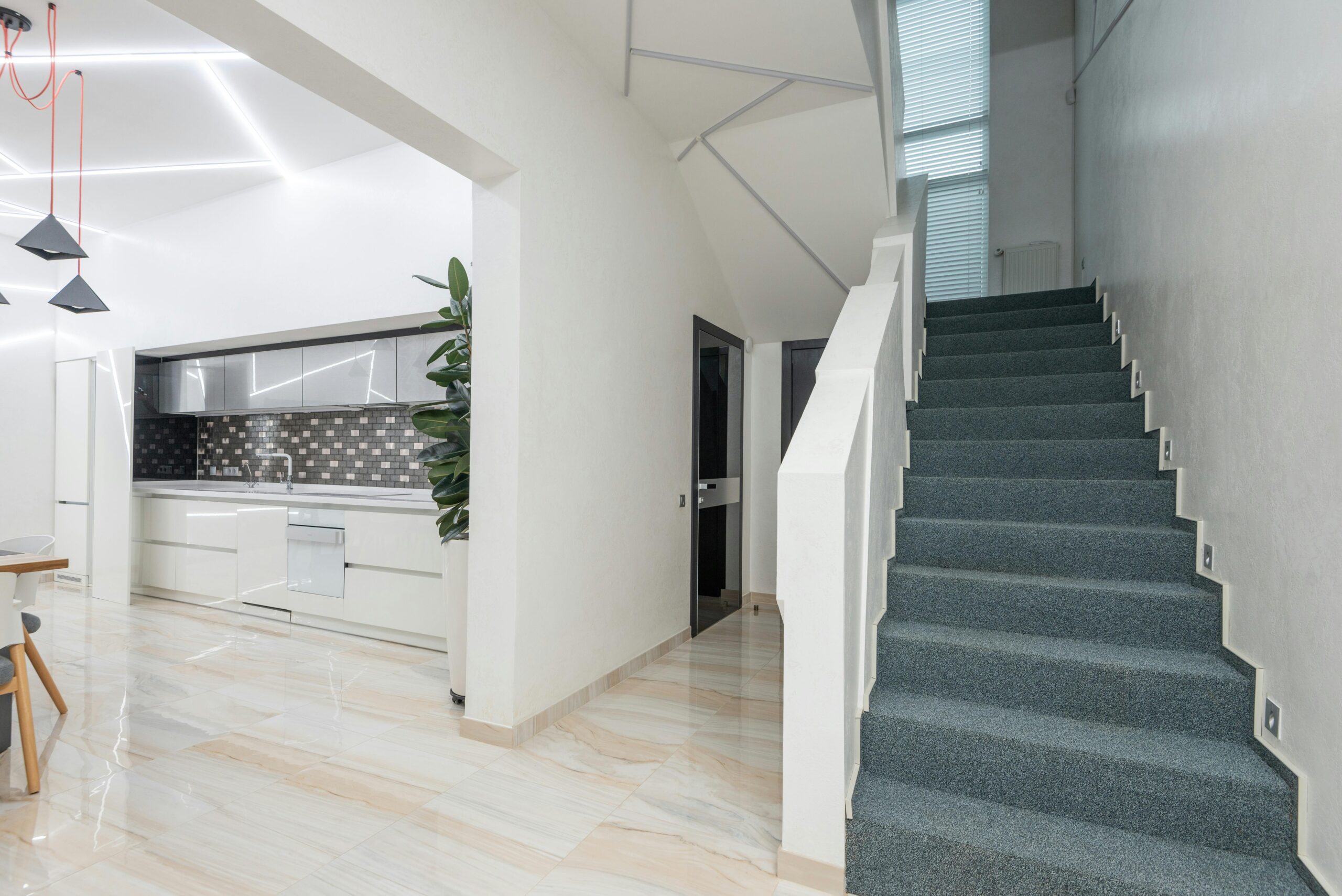Kitchen floors take serious heat. Spills, splashes, splatters - your floor sees it all.
But not every surface can handle the culinary combat zone. Whether you're a weekend warrior or a pro chef, finding the right flooring is about matching durability with style.
Here’s some pro advice on picking the best flooring for your kitchen.
Key Notes
- Hardwood offers timeless appeal but requires swift spill cleanup and regular maintenance for longevity.
- Vinyl and ceramic tile provide superior water resistance, making them ideal for busy family kitchens.
- Avoid carpet, unsealed hardwood, and cheap laminate as they quickly deteriorate in kitchen environments.
Hardwood: Classic and Timeless
Best for: Homeowners looking for a stylish, long-lasting flooring option who are willing to maintain it.
Hardwood floors in kitchen spaces bring warmth and elegance. Think classic countryside kitchen oozing charm.
They’re also durable with more than one life as you can refinish them multiple times.
Just bear in mind that spills and splashes should be dealt with swiftly as ignoring them could cause damage to your floor.
Pros:
- Adds a natural, rich look to your kitchen
- Easy to refinish when worn
- Complements many kitchen designs
Cons:
- Must be sealed properly
- Regular maintenance
- You pay for its luxurious appeal
Vinyl: Waterproof and Practical
Best for: People on a budget looking for durable, low-maintenance flooring.
Vinyl is budget-friendly and moisture-resistant, making it one of the best waterproof flooring choices for kitchens.
It pretty much handles whatever you throw at it, whether it’s spills, crumbs, or muddy footprints.
Vinyl comes in a wide range of designs, including options that look like natural wood or stone.
Pros:
- Affordable and simple to install
- Water-resistant and easy to clean
- Soft and comfortable underfoot
Cons:
- Dents more easily than tile or hardwood
- Cheap vinyl looks obvious
- Limited lifespan
Laminate: Affordable and Durable
Best for: Budget-conscious homeowners who want the look of wood without the price tag and are okay with replacing it after a few years.
Many homeowners are drawn to kitchen laminate flooring because it looks like wood but costs less.
It’s also incredibly durable and holds up well in a busy kitchen. Laminate is stain-resistant, easy to clean, and doesn’t need as much attention as hardwood.
Pros:
- Affordable
- Scratch and stain-resistant
- Easy to install, even for DIYers
Cons:
- Not as water-resistant as vinyl or tile
- Once damaged it must be replaced
- May decrease home value in some markets
Ceramic and Porcelain Tile: Durable and Easy
Best for: Households where floor longevity is on top of the list or those who enjoy modern and sleek designs.
Ceramic and porcelain tiles are hard to beat if you’re looking for the most durable flooring for kitchen spaces.
They resist stains, water, and wear, making them ideal for kitchens with young kids, pets or simply a steady stream of foot traffic.
When it comes to design, tiles are available in all sorts of sizes and finishes, and they can mimic the look of stone, wood, or even concrete.
Pros:
- Durable and water-resistant
- Easy to clean and maintain
- Available in many styles and finishes
Cons:
- Cold and hard underfoot
- Grout lines can stain and are tough to clean
- Installation is labor-intensive
Kitchen Flooring to Stay Away From
While there are many great flooring options for kitchens, there are a few materials you should steer clear of:
Carpet
Even though it’s soft and comfortable, carpet doesn’t hold up well in a kitchen. It stains easily and traps moisture, leading to mold and odors which could cause allergies or health hazards.
It’s also difficult to clean after spills or food accidents.
Cheap Laminate
Low-quality laminate tends to scratch or chip, and it’s not as water-resistant as other materials like vinyl or tile.
It’s also near impossible to repair, so in the long run you spend more paying for a full replacement.
Unsealed Hardwood
While hardwood is beautiful and luxurious, it must be properly sealed. This is because it’s susceptible to water damage.
In kitchens where spills happen frequently, unsealed hardwood will warp and discolor over time.
Thin Vinyl
Thin vinyl can tear or puncture easily, especially in high-traffic areas like the kitchen.
It may also start to wear down faster, leaving you with flooring that looks tired and worn out.
Frequently Asked Questions
What is the best type of flooring for a kitchen?
The best type of flooring for a kitchen depends on your needs. If you’re after durability and easy maintenance, tile or vinyl are excellent choices. For a more classic look, hardwood is great but needs a bit of TLC.
What is the best waterproof flooring for a kitchen?
Vinyl is one of the best waterproof flooring options for kitchens. It holds up well against spills and moisture, making it a smart choice for families with kids or anyone who cooks often.
What is the most durable flooring for a kitchen?
Tile, specifically ceramic or porcelain, is the most durable flooring option for kitchens. It resists stains, scratches, and moisture, and it can last for years with minimal maintenance.
Conclusion
Choosing the perfect kitchen flooring involves more than appeal, it’s about finding a surface that survives your culinary adventures.
From the classic warmth of hardwood to the bulletproof practicality of ceramic tiles, each material brings different strengths to your cooking oasis.
Your ideal floor balances durability, maintenance, and style, tailored to your lifestyle and budget. Whether you're dealing with messy kids, energetic pets, or your own cooking experiments, there's a flooring solution waiting.
Don't settle for less. Invest in a floor that can handle the heat, resist the spills, and look stunning while doing it.

